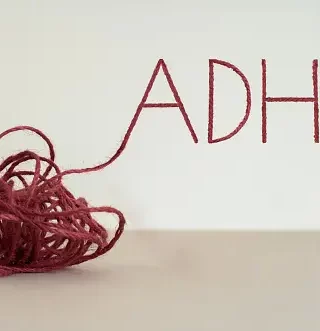
Wanting to join Working Well Trust?
3 Weeks ago by Jason Armstrong

When Mohammed received his diagnosis, he felt a huge weight had been lifted off his shoulders. It had taken 4 years and several misdiagnoses for him to ‘finally feel acknowledged and seen’. Mohammed is 25, and earlier this year he was told that he has ADHD inattentive type.
Looking back, Mohammed describes how he struggled at university. For many with undiagnosed ADHD, living independently, managing assignment deadlines, attending lectures and coping with extended periods of free time can be both daunting and overwhelming. And like many others, Mohammed was unable to finish his degree which was in games design and development.
After leaving university, Mohammed began working in retail, but he soon found the fast-paced, customer facing environment difficult to manage. He often felt overwhelmed and frustrated, and his frequent mood swings caused frictional relationships with his co-workers. These challenges resulted in Mohammed starting and then leaving several jobs.
Mohammed’s cousin, a social worker, was the first person to wonder whether Mohammed’s feelings and behaviours might be ADHD-related. Mohammed recalls that his cousin told him that he reminded her of some of the people she worked with, and she encouraged him to get an ADHD assessment.
When Mohammed received his diagnosis in May this year, he was already working with an employment specialist at Working Well Trust. But now with a confirmed diagnosis, they were able to focus together on roles that best suited Mohammed. Keen to move away from retail, he started a role in security. The hands-on training and pace of work particularly appealed to him, and full of optimism, he looked forward to a fresh start. Mohammed’s employment specialist also explained to him that if he disclosed his diagnosis to an employer, then the employer can make some workplace adjustments that would help Mohammed do his job.
Working with both his employment specialist as well as occupational health, Mohammed was able to identify the key steps his employer could take to support him in his new role. Mohammed is now working for his new employer and feels supported at work. He can take regular breaks and retreat to a quiet room if he is feeling overwhelmed. His shift pattern is currently under review, and he will soon be given more rest days between work.
‘I’ve had great feedback so far from my management and I feel like there’s been lots of reassurance that I am doing a good job’, Mohammed explains. ‘I’ve definitely learnt to be kinder to myself, and taking regular breaks is something I’ve definitely utilised. It’s been so beneficial for me’, he adds.
Mohammed is grateful for the tailored support he’s received from his employment specialist. ‘My employment specialist really understands me’ he shares. ‘He’s aware of the things I find challenging and has been great at supporting me to find work, especially with this new diagnosis. He’s had a positive impact’.
ADHD coach, Sarah Nunziata, explains that challenges in employment, often due to changing work patterns, or even moving to a new company, can ‘really throw things off kilter for some people’ and in some cases, these feelings and behaviours can be ADHD symptomatic which may result in a later diagnosis. According to ADHD UK, there are currently an estimated 2 million adults in the UK with ADHD undiagnosed, many of whom will be facing similar workplace challenges to those experienced by Mohammed.
Sarah believes it is vital that organisations understand how they can support neurodiverse staff members, but employees themselves are often reluctant to talk to their employers about their ADHD. ‘There is definitely still a stigma that comes with ADHD, and when employees do not share their diagnosis with their employers, it means that they will not be getting the workplace adjustments and support they need to help them thrive at work’, Sarah adds.
Sarah provides 1-2-1 support to people with ADHD through the Access to Work Scheme. This government funded employment support programme supports people with a physical or mental health condition or disability to take up or stay at work. According to Sarah, many people have not heard of the scheme, and it is a massively underutilised resource. ‘Companies can access this scheme and don’t have to pay for this support’, she explains.
Sarah explains that in the UK, there’s a legal requirement for employers to make reasonable adjustments in the workplace for employees or job applicants who have a disability or long-term health condition, and that ADHD qualifies for both. Workplace adjustments however need to be tailored to the individual. ‘You cannot use a cookie cutter approach’ she explains. Employers must take a collaborative approach when exploring adjustments with their employees and ‘it can take a few goes to find the adjustments that work’, Sarah explains.
Sarah says that her work focuses on helping clients ‘make sense of their diagnosis’. Using a strength-based approach, she helps clients, as well as employers view ADHD in a positive way. She emphasises that people with ADHD have many strengths and so much to offer in a workplace environment. ‘They can often find solutions and offer flexible thinking around challenges that can often keep their neurotypical colleagues feeling stuck’, she adds.
Meanwhile, Mohammed has been in his new role for 4 months and is really enjoying the support he is receiving from both his employer and employment specialist. When asked about his experience of a late diagnosis he says, ‘It’s easy to look back at my life and feel sad times about what I haven’t been able to achieve, but I know it’s important to look forward and be positive about what’s next’.